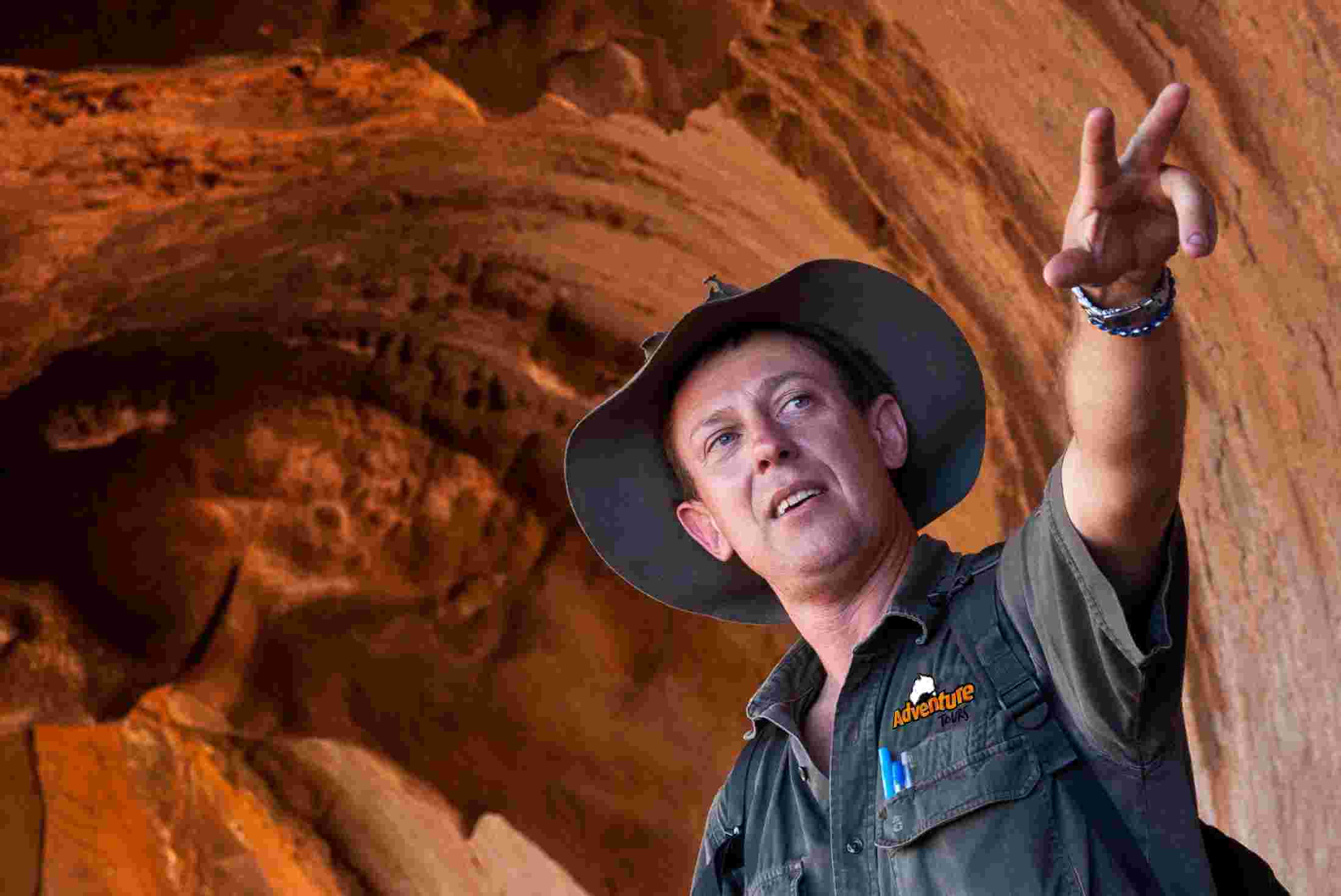SITTGDE006 – Develop and maintain the general and regional knowledge require by guides
In this study unit you will learn how to:
- Research information on Australian and local region
- Prepare information for guiding activities
- Update general knowledge of Australia and local region
Introduction
The world is full of interesting places, with millions of people who have the desire to learn and see more of it; so people engage in tourism. In order to engage in the tourism experience in the best and most effective way, tourists often rely on the services of a guide.
Types of tour guides
Being a tour guide can mean, and involve, a range of different things. Not all tour guides are the same; you might work in a static attraction, such as a museum or art gallery, or you might be a guide on an escorted coach tour where you are looking after travelers for many days and through many different countries or regions. These will all take different skill sets and different knowledge requirements.
Types of tour guides can include;
On-site Guides
On site guides generally operate in places like museums, art galleries or other large establishments that people might visit and tour; the guide will conduct the tour of this building or site, explaining features, attractions and areas of interest along the way.
City Guides
Visitors to a city may wish to take a tour by coach, car or even a walking tour to familiarize themselves with their surroundings. A city guide will take these visitors along a specific route, again explaining and pointing out areas of interest along the route. City guides need to have in depth information about their city and the areas of interest to visitors. This might include information about its history, culture, foods, architecture, entertainment options, economy and so on.
Driver and Step-on Guides
This kind of guide is often a specialist who comes on-board a motor coach to give informed overviews of the cities being toured. This would usually be for tour groups that are taking in more than one region or country during the trip. Fully escorted coach tours will often have a driver (who will make commentary along the route travelled) and, perhaps, a tour escort (or leader) who can make commentaries but will also look after other parts of the tour; ensuring check-in at hotels goes smoothly, offering assistance and advice at all the stops along the way and more. Examples include; … examples shown in learner guide….

The purpose of travel
The type of guide a tourist will require (or if indeed they will need a guide at all) will, to a large degree, depend on the reason for their travel. There are many reasons why people travel; they might be travelling for health reasons, for educational purposes or for religious reasons. There are, however, three main reasons why people travel. These are;
Business – people who travel for business may;
- be attending business meetings or negotiations
- be attending seminars or conferences
- undertaking sales and marketing calls on customers.
Because they are in your area for business purposes, it is less likely that they will have need of a tour guide, unless they are visiting an attraction (such as museum or gallery) during any leisure time they might have and only a limited amount of time at their disposal. This might, however, mean that a tour guide might be the most practical option for them!
Visiting friends and relatives (VFR) – people who are visiting friends and/or relatives may well do a range of tourism based activities. Here, too however, they are unlikely to need the services of a guide as this role may be taken by the people they are visiting.
Leisure – this group of people travel for holidays, rest and relaxation or just to have some fun. The leisure group can be split into a range of sub groups. For example;
- Sun, sea and surf; relaxing and recuperating by the sea, or taking part in water based activities
- Nature based tourism; bush, outback or rainforest tours, visits to botanic or zoological gardens and so on
- Sports based tourism; fishing or golfing holidays for example
- Adventure tourism; this could include activities such as trekking, climbing, white water rafting, ballooning among others
- Educational or cultural based tourism; this might include visits to museums and galleries, architecture, learning about other cultures, languages and foods.
- Coach tours; that move from city to city and site to site so that travelers can get a flavour of many different places.
It is this group of people who, more than any other group, may use, and rely on, the services of a tour guide when undertaking, for example, fishing tours, bushwalks or treks, mountain climbing and so on.
The role of interpretation in creating a powerful customer experience
While providing information is the primary function of a tour guide, reciting endless lists of facts can be boring and off putting to tourists. Yes, they want the information you give them to be correct but they are looking for more than mere facts and accuracy; they want to be entertained and, perhaps even, amazed.
